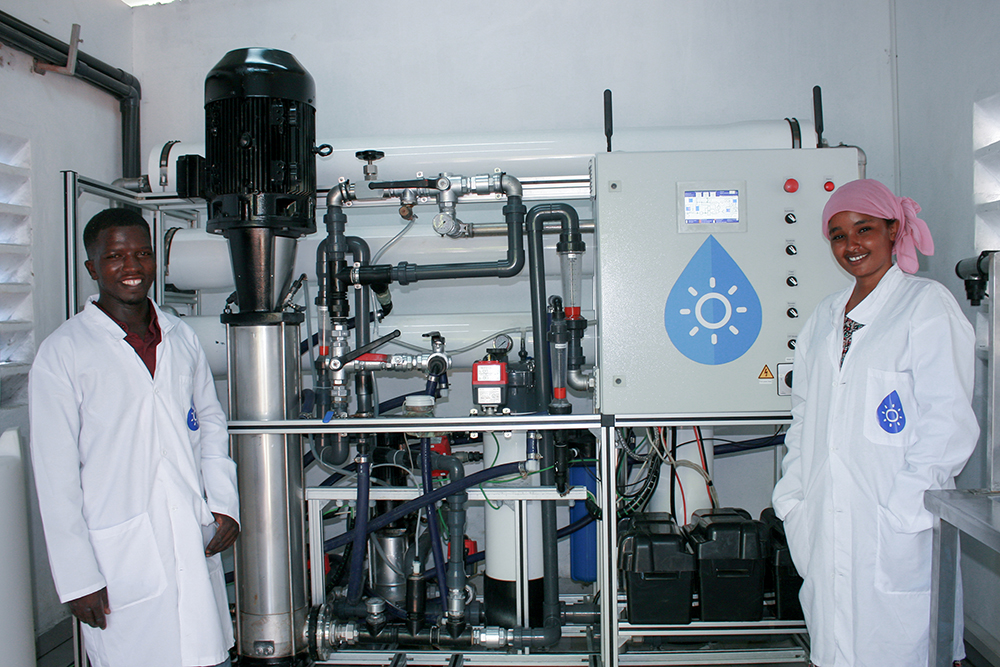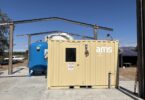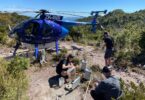Exclusive interview: H20 Global News’ Sion Geschwindt spoke with Boreal Light Gmbh CEO, Dr. Hamed Beheshti, to find out more about their solar desalination solution and how it is assisting hospitals and off-grid communities mitigate the impacts of COVID-19
Since the COVID-19 pandemic began more than 18 months ago, hospitals across the world have struggled to keep up with the sheer number of patients requiring treatment, facing shortages of vital supplies such as oxygen, ventilators and – in some places – water.
Clean water is the first line of defence against the spread of any disease, however many health care providers in some of the world’s driest and remote regions face chronic scarcity. The pandemic aggravated this already delicate situation, pushing many hospitals to the brink.
To help overcome this challenge, Berlin-based company Boreal Light Gmbh – through their trademark WaterKiosk – have been hard at work connecting hospitals to their solar desalination solution. These desalination plants provide the required safe water for drinking and sanitation at a fraction of the usual cost, helping health facilities maintain safety and hygiene standards.
COVID-19 Response
The COVID-19 pandemic demonstrated the critical role hygiene and water play in people’s lives and the safe operation of the health sector. Early this year WaterKiosk, with support from Boreal Light and the German Federal Ministry for Economic Cooperation and Development (BMZ), initiated Africa’s largest solar desalination project for hospitals.
“The plants operate solely on solar energy, desalinate brackish and saltwater into hygiene drinking water, require no chemicals for their treatment process, and sterilise wastewater coming out of COVID-19 departments prior to disposal,” said Boreal Light CEO, Dr. Hamed Beheshti.
The project will install solar desalination plants at 28 of the biggest hospitals in East Africa. In March this year, Coast General Teaching and Referral Hospital (CGH) and the Mombasa Hospital in Kenya, became the first recipients.
“The solar desalination plant has come a long way to assist us with the water shortages we’ve been having,” said Deputy Head of Coast General Referral and Teaching Hospital, Dr. Mary Ochola. “This is going to supply key equipment in our theatre, dialysis unit, CSSU, and ICU, with fresh clean water.”
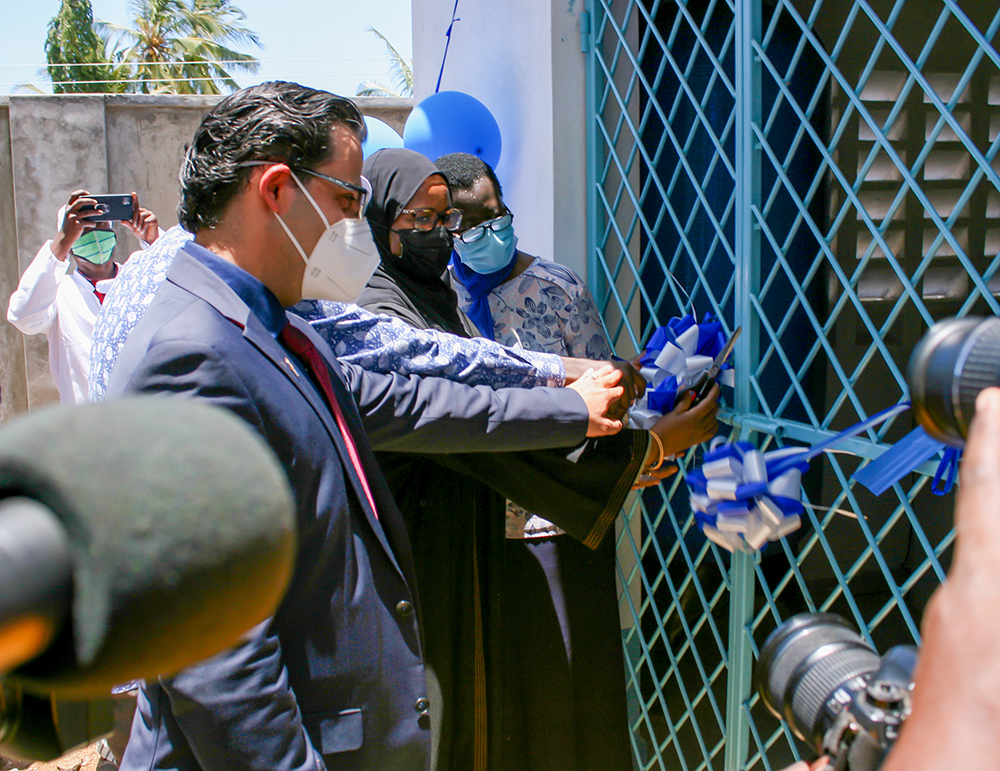
Dr. Hamed Beheshti (left) and Dr. Mary Ochola (right) at inauguration of first solar desalination plant
The project aims to mitigate the impact of the Covid-19 pandemic and will have a combined daily capacity to supply over one million litres of hygiene drinking water. With this project, Boreal Light, through its trademark WaterKiosk, have become the world’s number one solar desalination provider for COVID-19 hospital relief.
“This project has been so successful, that other hospitals from across Africa have approached us looking to install these systems at their facilities,” said Beheshti. “Our solution is simple, reliable, and affordable, which helps communities access critical water supplies.”
Keeping it simple
Boreal Light’s technology is a self-contained solar desalination system designed to be simple and easy to maintain for use, not just in urban hospitals, but rural off-grid communities as well.
“We run a reverse osmosis system directly on solar panels – no batteries, grid or diesel needed,” said Boreal Light CEO, Dr. Hamed Beheshti. “We didn’t want to introduce rocket science technology, we wanted to take the most mature tech available and simplify it to make it affordable, low maintenance and reliable.”
The simplicity of the WaterKiosk design means that communities who live hundreds of miles from the nearest town can do most of the maintenance themselves. “This machine is built for remote places – 80% of the maintenance and repairs can be done with a wrench and screwdriver,” said Beheshti.
The WaterKiosk extracts saline water from boreholes dug close to the shoreline. Pumping from a borehole is more affordable than sourcing directly from the ocean and provides enough to meet the 2000L per hour capacity of the average WaterKiosk system.
Through a set of funding initiatives, Boreal Light is able to provide water through via WaterKiosks at a fraction of the usual price.
“The cost of 20 litres of hygiene drinking water in Kenya is four dollars, but our system provides this same amount for just one dollar,” said Beheshti. “For people from rural areas who can’t even afford one dollar, we partner with companies who subsidise this price, which allows us to provide 20 litres of safe potable water for just 10-dollar cents.”
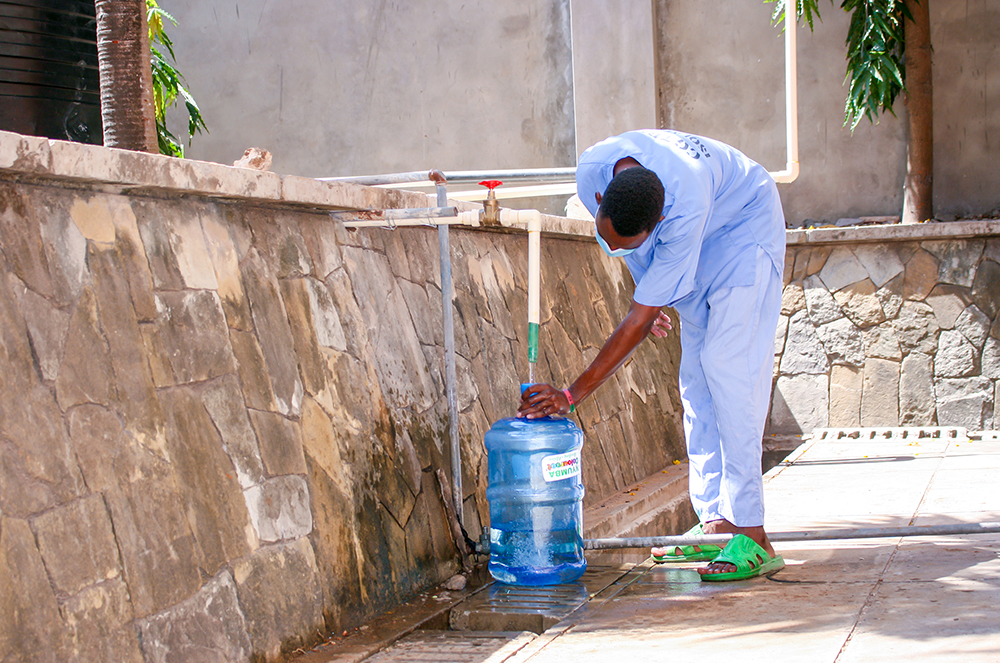
Affordable drinking water can make all the difference
Many of the projects are supported by the German government, as well as a number of large companies such as BMW and Lufthansa, that enable the technology to get to where it’s most needed.
Boreal Light is however not just a supplier of technology, it is a social enterprise, bringing added value to the communities it serves. “I always like to say, we work beyond technology towards social business and a circular economy” said Beheshti.
Circular economy
The WaterKiosk doesn’t just bring safe and affordable water to the communities – it does so sustainably. The desalination plants are run exclusively on solar energy and all the waste by-products are reused. Since the wastewater is chemical free, it can be used for a number of things, including fish farming, dishwashing and flushing of public toilets. This salty water can even be used to grow plants: a WaterKiosk in Northern Kenya, sponsored by Lufthansa, produces 2000 litres of waste brine water per hour, which is being successfully used to irrigate a hectare of salt resistant crops and trees.
This aligns with the idea of a circular economy, which aims to replicate nature’s regenerative cycles of reuse: as the saying goes, ‘waste is just a resource in the wrong place’.
By incorporating the principles of sustainability and circularity, WaterKiosk can help improve sanitation, food security and long-term resilience in the communities it serves, which is all the more important during times of crisis.
Beyond COVID-19
The pandemic has forced everyone to reflect on the past, the present, and learn how to adjust to the realities of a rapidly changing world. What is deeply evident is that there was nothing ‘normal’ about the world before the pandemic. Take water for instance: according to the United Nations, one in three people don’t have access to safe drinking water, and two out of five are without proper sanitation.
It is clear that we must break with business-as-usual, and build a more resilient society. Improving access to water and sanitation is a vital first step in laying the foundation upon which we can achieve the sustainable development goals.
Building back better will take a lot of hard work, cooperation and investment, especially in places that are still struggling to meet basic needs. WaterKiosk, and projects like it, are the positive changes needed to make the difference. If scaled up, these projects will rewrite the way we view access to clean water and sanitation.
“We expect that 33 hospitals will have our technology installed by the end of this year, and that more and more will start investing in our technology in the future,” said Beheshti. “We already have pilot projects in South America and South East Asia, and in the coming years we look to stabilise these markets, bringing our solution to where it is most-needed.”
Do you have an article to share? Click here to submit or if you’d like to subscribe to our weekly newsletter, click here.



